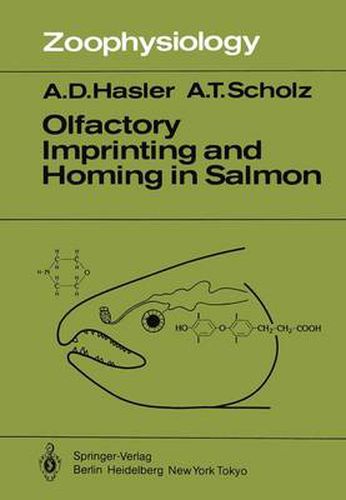Readings Newsletter
Become a Readings Member to make your shopping experience even easier.
Sign in or sign up for free!
You’re not far away from qualifying for FREE standard shipping within Australia
You’ve qualified for FREE standard shipping within Australia
The cart is loading…






This title is printed to order. This book may have been self-published. If so, we cannot guarantee the quality of the content. In the main most books will have gone through the editing process however some may not. We therefore suggest that you be aware of this before ordering this book. If in doubt check either the author or publisher’s details as we are unable to accept any returns unless they are faulty. Please contact us if you have any questions.
Chance Favors Only the Prepared Mind How does a scientist go about the task of pushing back the curtains of the unknown? Certainly the romance of tackling the mysteries of nature provides the motivation, for who would not be inspired by the remarkable life history of this romantic beast, the salmon. After living in the Pacific Ocean for several years, salmon swim thousands of kilometers back to the stream of their birth to spawn. I have always been fascinated by the homing migration of salmon. Noone who has seen a 20-kilogram salmon fling itself into the air repeatedly until it is exhausted in a vain effort to surmount a waterfall can fail to marvel at the strength of the instinct that draws the salmon upriver to the stream where it was born. But how does it find its way back? I was puzzling over this problem during a family vacation in 1946. Inspired by the work of the great German Nobel Laureates, Karl von Frisch and Konrad Lorenz, I had been conducting research with my graduate student Theodore Walker, since 1945, on the ability of fishes to discriminate odors emanating from aquatic plants. Von Frisch had studied schooling minnows and discovered that, if broken, their skin emitted a con specific chemical substance, termed Schreckstoff, which caused other members of its school to disperse and hide.
$9.00 standard shipping within Australia
FREE standard shipping within Australia for orders over $100.00
Express & International shipping calculated at checkout
Stock availability can be subject to change without notice. We recommend calling the shop or contacting our online team to check availability of low stock items. Please see our Shopping Online page for more details.
This title is printed to order. This book may have been self-published. If so, we cannot guarantee the quality of the content. In the main most books will have gone through the editing process however some may not. We therefore suggest that you be aware of this before ordering this book. If in doubt check either the author or publisher’s details as we are unable to accept any returns unless they are faulty. Please contact us if you have any questions.
Chance Favors Only the Prepared Mind How does a scientist go about the task of pushing back the curtains of the unknown? Certainly the romance of tackling the mysteries of nature provides the motivation, for who would not be inspired by the remarkable life history of this romantic beast, the salmon. After living in the Pacific Ocean for several years, salmon swim thousands of kilometers back to the stream of their birth to spawn. I have always been fascinated by the homing migration of salmon. Noone who has seen a 20-kilogram salmon fling itself into the air repeatedly until it is exhausted in a vain effort to surmount a waterfall can fail to marvel at the strength of the instinct that draws the salmon upriver to the stream where it was born. But how does it find its way back? I was puzzling over this problem during a family vacation in 1946. Inspired by the work of the great German Nobel Laureates, Karl von Frisch and Konrad Lorenz, I had been conducting research with my graduate student Theodore Walker, since 1945, on the ability of fishes to discriminate odors emanating from aquatic plants. Von Frisch had studied schooling minnows and discovered that, if broken, their skin emitted a con specific chemical substance, termed Schreckstoff, which caused other members of its school to disperse and hide.